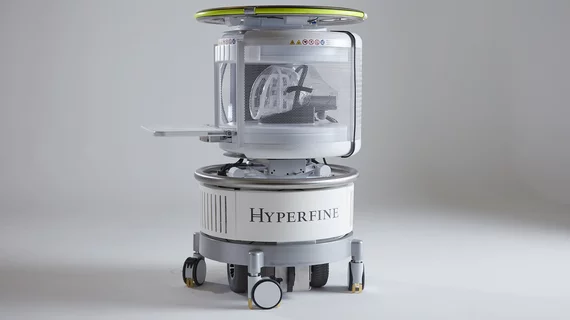Hyperfine secures $90M to ‘aggressively’ advance commercial expansion, fast-track AI developments
Portable imaging startup Hyperfine recently announced a new $90 million capital infusion that will go toward ramping up business operations and accelerating developments for its core product.
A number of investors pitched in during this series D financing round, including GV (formerly Google Ventures), Nextrans (KClavis-Nextrans), Axiom Associates, Huami, Colle Capital, LSS, and Altium Capital.
The Guilford, Connecticut, startup said the money will “immediately” accelerate the overseas launch of its Swoop portable MRI system and help scale-up commercial expansion of the modality in the U.S.
“Investing in a company is the hallmark of confidence, and we are very appreciative that so many highly respected organizations have responded so enthusiastically to the market need for portable MR imaging we have ignited,” Hyperfine’s Chief Medical Officer Khan Siddiqui, MD, said in an email statement Wednesday. “With the support from all of our investors, we will change the way the world delivers care to patients—affordably, anywhere, any time.”
Additionally, Siddiqui said the new funding will further advance new regulatory clearances, expedite AI-driven imaging sharing developments, and broaden the firm’s ability to work with top doctors to identify new uses.
Hyperfine’s portable MRI machine is designed to wheel directly to the patient’s bedside, plug into a standard wall outlet, and is controlled by an iPad. The company made a big splash in February 2020 after the U.S. Food & Drug Administration cleared its Swoop technology for pediatric brain imaging.
Since that time, it has gained FDA clearance for adult brain imaging and launched a $1.6 million project to mitigate infant brain injury.
“Our mission is simple: democratize healthcare for all patients, everywhere,” Founder Jonathan Rothberg, PhD, said in a statement. “We refuse to accept barriers to accessible, equitable care, and we intend to make the previously impossible both possible and affordable by delivering MR imaging to the patient, wherever that patient is.”

